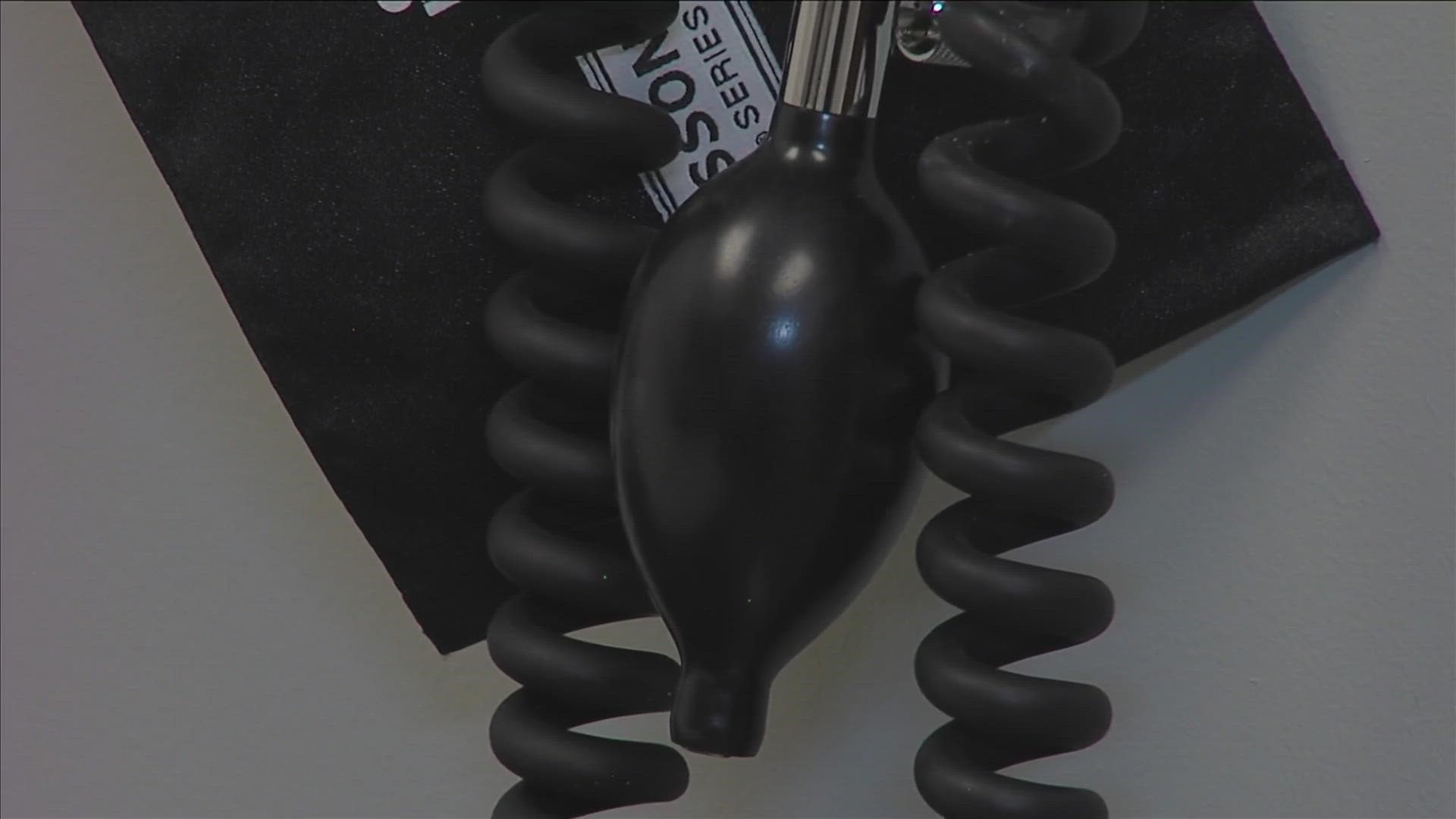MEMPHIS, Tenn. — As we end American Heart Health month, did you know that heart disease is linked to some cancers?
According to the CDC, cancer and cardiovascular disease share some cumulative risk factors including treatments that damage the heart.
It has made medical professionals study the cardio-oncology field even more.
We spoke with the only board-certified cardio-oncologist in Memphis, who further explained how the guidelines for treating heart disease from cancer treatments.
We also spoke with the doctor’s patient, Jamie Blackwell, who was diagnosed with Hodgkin’s Lymphoma, a type of cancer that affects the lymphatic system, which is part of the body's germ-fighting immune system.
Years after surviving it, Blackwell started having heart issues, due to too much exposure from her radiation treatments.
“I had lost everything. My health, my job, my house, and my retirement funds,” Blackwell stated.
Jamie Blackwell is a living testimony. Her journey started in 1974 while she was on the path of pursuing her dreams of becoming a pediatric emergency room physician.
“This was one of the first cancers they were starting to be able to cure. Not just give you some time, but actually, cure it,” Blackwell said.
Following her radiation treatments, Blackwell said she still found herself sick a lot, experiencing rapid heartbeat palpitations and shortness of breath, so after visiting the lung doctor for a test, she first learned it was her heart that was now the issue.
“What they didn’t know back then was that they didn’t know how much radiation to do, so they gave big doses. We’ve learned now there’s a lot of long-term survivors,” Blackwell explained.
Blackwell had open heart surgery bypass and thought that fixed the problem, but it was only the beginning of a life-long battle…nearly 20 years after her radiation treatments.
“It was really scary nothing made sense,” Blackwell said. “We talked to my doctors and we knew about the radiation and we knew it did the scarring from the surgery but why was this so bad?”
Even after many visits to cardiologists, there was no clear answer…until she learned about the Hodgkin’s Lymphoma Support Group for Long-Term Survivors on Facebook, where there were others with similar stories.
She found out about Dr. Isaac Rhea, who is the only board-certified cardio-oncologist in the Memphis area at Methodist Le Bonheur Healthcare and Sutherland Cardiology Clinic.
Rhea was able to detect that Blackwell’s radiation treatments manifested into heart disease, an answer she had been looking for.
“He said you are the type of person I studied for.”
This came as a sigh of relief, that he could also help treat her condition. Thanks to the new guidelines from the European Society of Cardiology, which establishes what cardio-oncology should be and how it should also look like.
“I think the most important thing is that there have been so many conflicting recommendations from all sides. From the oncology side, from the cardiology side…this finally puts it together. Saying here’s really what you should be doing and it even gives you grades on what you definitely should do, probably a good idea, ehh you can consider it, or definitely don’t’ … so it really spells it out for us,’” Rhea stated.
Rhea said heart disease after cancer therapy is slightly more common in women, but also mostly depends on the therapy received and the risk factors they have at the time. He said no matter the condition of your heart, here is what you can do.
“The general basics of heart health still apply. You should still exercise. They say 150 minutes a week, for cancer patients that could be very difficult. I will take whatever I can get. Watching your diet as best that you can. That’s trickier for cancer patients because some are struggling to eat and some are not so trying everything in proper moderation,” Rhea said. “But mostly trying to take care of all the other issues that already exist. Whether it be high blood pressure, cholesterol, diabetes.”
Rhea added that seeing a primary care physician or whatever specialist you already have is recommended. Also, if you feel something isn’t right, go get it checked out.

